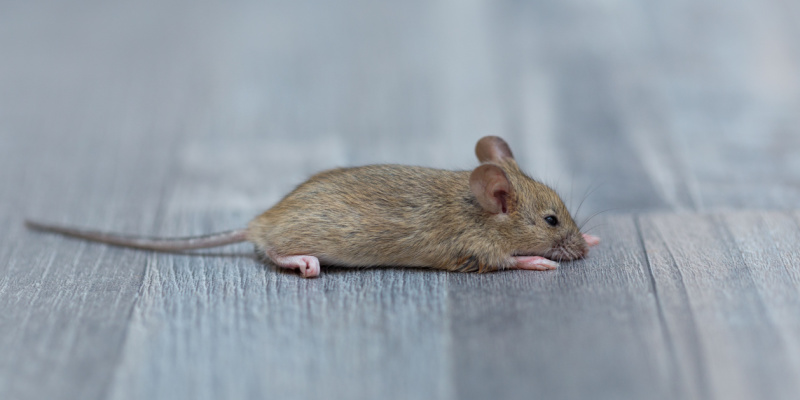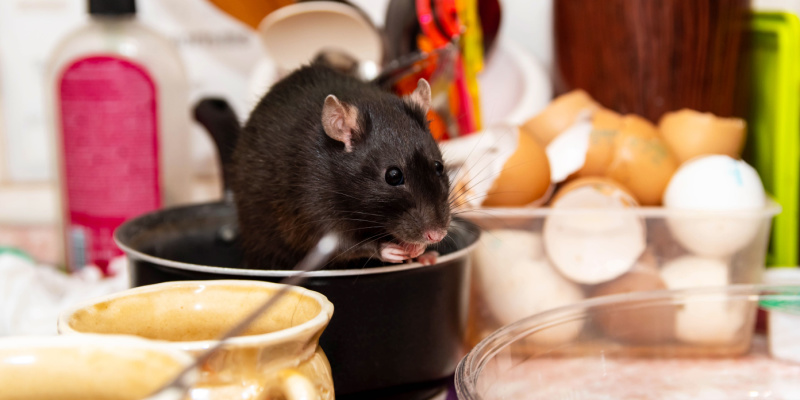Mice are one of the most common household pests, and their presence can be both a nuisance and a health hazard. As a homeowner, it’s important to recognize the signs of a mouse infestation so that you can take prompt action. There is never a level of rodent infestation that is acceptable in your home – any level of infestation puts you and your family at risk. Here are key indicators to help you determine if you have mice in your home. Take some time to familiarize yourself with the signs of mice activity in your home so you can take action as soon as an infestation becomes evident.
1. Droppings
Mouse droppings are one of the most obvious signs. They are typically small (about 1/4 inch), rod-shaped, and pointed at the ends. You’re likely to find them in places where food is stored, such as kitchen cabinets or pantries, as well as under sinks, inside chewed cardboard boxes, along baseboards, and in attic spaces.
2. Sounds
Mice are most active at night. You might hear scratching sounds within walls, ceilings, or floorboards. The sound of mice scurrying or squeaking is a strong indicator of their presence.
3. Gnaw Marks
Mice need to gnaw constantly to keep their incisors from growing too long. Look for gnaw marks on furniture, wires, food packaging, and other household items. Fresh gnaw marks tend to be lighter in color and become darker as they age.
4. Nests
Mice build nests from soft materials like fabric, paper, or insulation. Check hidden areas, such as behind appliances or in secluded corners of closets or garages, for these nests.
5. Foul Odors
A persistent, stale smell, especially in areas with low ventilation, can be a sign of an active mouse infestation. This odor comes from mouse urine and is particularly noticeable in larger infestations.
6. Pet Behavior
Pets, especially cats and dogs, may become more active or excited in areas where mice are present. They may paw at spaces under refrigerators, stoves, or low-clearance furniture where mice might hide.
7. Tracks and Grease Marks
Mice can leave dirty tracks or grease marks along walls, floors, and baseboards. These tracks might be hard to see, so shining a flashlight at a low angle across surfaces can help detect them.
If you notice any of these signs, it’s important to take action quickly to prevent the infestation from worsening. For expert advice and effective solutions, visit Bug Baron. Our team of professionals can provide thorough inspections, identify the extent of the problem, and offer tailored solutions to keep your home mouse-free. Remember, early intervention is key to controlling mouse populations effectively. And, once you have dealt with the current infestation, you can get ongoing help to ensure that your property remains rodent-free going forward.


